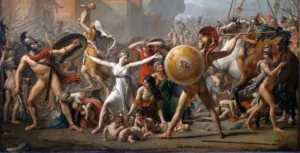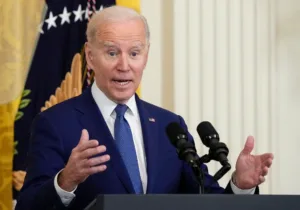The revelation of a $400 million cash delivery to Iran early this year that coincided with the release of U.S. prisoners by Iran somewhat recalls the 1980s era missiles for hostages controversy.
This $400 million was part of a larger $1.7 billion payment to Iran that was the corpus and interest of a 1970s Shah-era Iranian payment to the USA for arms, which were never delivered once the Shah was overthrown by the new anti-USA Shiite theocracy. The Obama Administration negotiated this settlement of an over 36 year old dispute alongside the nuclear deal, amid a presumed wider hope of eventually normalizing relations with Iran.
God and history will judge whether this negotiated attempt to stymy Iran’s quest for nuclear weapons was wise. Of course the administration denies the $400 million cash delivery was ransom for the prisoners’ almost simultaneous release. The claims seem strained. But declining the opportunity to retrieve imprisoned Americans in exchange for an already agreed upon reimbursement also would be vexing. Critics of the cash delivery should perhaps better refocus on the larger question of the Iran nuke deal, with the accompanying $1.7 reimbursement and the tens of billions in released financial assets that will further empower Iran’s tyrannical mullahs.
The 1980s negotiations between Reagan’s National Security Council and Iran were fueled by hopes that Iranian “moderates” would be empowered by USA arms sales that would help Iran in its war with Iraq, and that Iran would encourage its terrorist proxies in Lebanon to release USA hostages there. (Iran’s Islamic Republic at its start had of course revealed its lawless character when it seized U.S. Embassy staff as hostages in 1979 for an over year long captivity.) Several hostages in Lebanon were released, although it’s not entirely clear to what extent the arms shipments directly facilitated their liberation. Other hostages remained in captivity or were killed. The Iranian “moderates” of course turned out not to be not so moderate but simply conventional anti-American Islamists who publicly exposed the deal to global ridicule.
One USA arms shipment to Iran had included as passengers two leading staffers of the National Security Council, Bud MacFarlane and Oliver North, who delivered to their Iranian hosts both a cake and a Bible, personally signed by President Reagan. The President’s inscription, intended to appeal to a commonality among persons of Abrahamic faiths, read: “And the Scripture, foreseeing that God would justify the Gentiles by faith, preached the gospel beforehand to Abraham, saying, ‘All the nations shall be blessed in you.’ Galatians 3:8 [signe] Ronald Reagan, Oct. 3, 1986.”
The resulting scandal deeply wounded the Reagan Administration and USA global standing. Unsupported by others in the government, but backed by a reluctant President anxious to retrieve hostages in Lebanon whose families had personally appealed to him, the National Security Council had imagined that ostensibly reasonable members of the Iranian theocracy would desire renewed relations with America, especially with the Soviet Union occupying neighboring Afghanistan.
In fact, theocratic Iran’s war with Iraq and wider diplomatic isolation did not override its foundational anti-American ideology. As to the Soviets, although Islamist, the Iranian mullahs identified their 1979 revolution as part of an historical arc linked with the 1917 Bolshevik Revolution and the 1789 French Revolution. For Iran, then and now, the American Revolution, premised on self-government and rule of law in a mostly Christian society, is the permanent main enemy.
Reagan’s defense secretary Caspar Weinberger, who opposed dealing with Iran, wrote in his 1990 memoir: “I feel that as long as the leadership in Iran remains as it is (and in my opinion it has not changed substantively after Ayatollah Khomeini’s death), it is futile to I expect that any kind of agreements with such a governments would be kept or would be of any value.”
America has negotiated strategic partnerships with more despotic regimes than Iran’s whose ideological hatred is no less deep. The USA helped save Stalin’s Soviet Union from defeat by Nazi Germany with unlimited food, transportation and arms. And 30 years later the USA constructed a de facto alliance with Maoist China against the Soviet Union. Stalin and Mao were more murderous than the Iranian mullahs, and their anti-American ideology no less intense. But the Chinese and Soviets were rationally motivated by the need for countering more imminent threats.
Although theocratic Iran and the USA both share a common enemy in ISIS, that commonality against a relatively middling foe is unlikely to outweigh the spiritual intensity and self-identity of Iran’s mullahs in their hatred of America and of the West. There is also the question to what extent devotedly apocalyptic clerics can be rational strategic decision makers in the sense that communists and other non-religious ideologues often could be.
Arms, cakes, Bibles and cash are unlikely to amend much less transform the fearsomely fanatical tyranny in Iran. Far likelier that time, strength, patience and the hand of God will eventually prevail against and remove the zealots who’ve tormented Iran and vexed much of the civilized world for 36 years.







 Live in the DC area? Sign-up for Providence's in-person events list!
Live in the DC area? Sign-up for Providence's in-person events list!